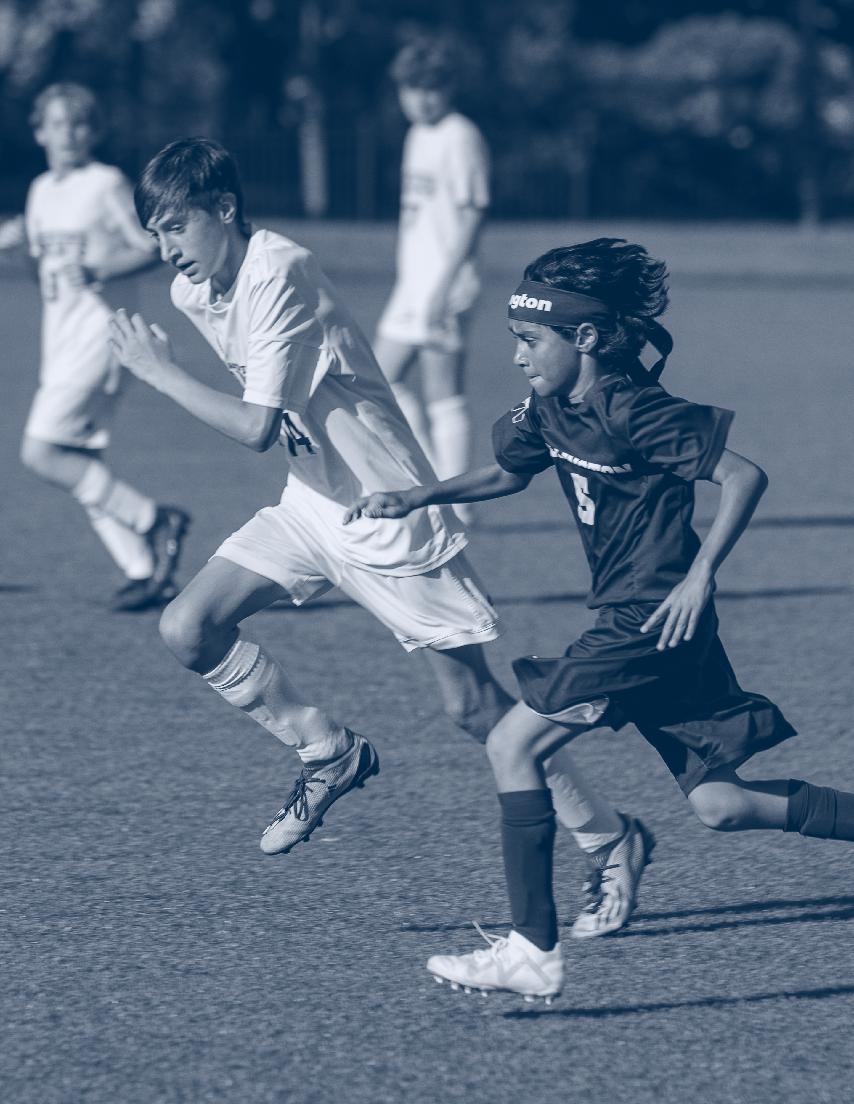Middle School Programs



I’m delighted that your search for a unique educational experience has led you to Wellington! Our middle school is a dynamic, vibrant environment where every student is known, supported, and challenged to be their best self each day — inside and outside the classroom.
Wellington’s mission and values are at the heart of our work. Through authentic and engaging learning experiences, we help students find their purpose and realize their potential for tomorrow’s world. This is a school that meets young people with unconditional positive regard, an approach that builds a relational foundation upon which students can take risks and embrace academic challenge. Our team embodies the enduring belief that authentic partnerships and open communication between the adults at school and the adults at home elevate academic outcomes and nurture belonging for all. And our entrepreneurial spirit of curiosity, authenticity, and ambition imbues our work with a growth mindset and emphasis on lifelong learning that is crucial for young people.
We believe in educating the whole child, which means that learning also extends beyond the classroom walls. Trips at each grade level and our winter ski program offer unique opportunities for the experiential learning and relationship building that are hallmarks of the Wellington experience. I beam with pride as I see young people connecting authentically with one another in our entirely student-led house program — a testament to Wellington’s commitment to student voice, agency, and autonomy. Our athletics and performing arts offerings mean that everyone has an opportunity to flourish. There are so many ways to be a Jag!
At Wellington, students have opportunities to elevate their voices and pursue their passions in a supportive space that challenges them to take risks and think big. Our middle school is imbued with curiosity and joyful energy — in the classrooms, in the dining room, on the fields, in the commons, and in the halls. I invite you to learn more about the middle school experience in the pages ahead, and I encourage you to visit us in person so that you can see for yourself what makes this a thriving community of learners. All it takes is one day to see it in action and become enraptured.
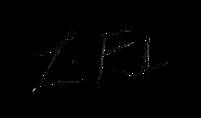
Head of Middle School
While we have a more detailed Code of Conduct that outlines expectations for a safe and supportive community, we refer to these Middle School Truths as our rules to live by:
• Be Safe
• Be Kind
• Take care of your business
• Honesty is everything
During their middle school years, students are encouraged to find their people, seek out trusted adults, and try something new. In addition to their academic experiences, students benefit from being involved in and contributing to the life of the school. Students are asked to bring their own ideas to faculty in order to cultivate a more inclusive and diverse middle school culture that reflects who they are.
Examples of student involvement for all middle school grades.
Affinity groups - Groups with a common interest or core cultural identifier (A Foot in 2 Places, Boys of Color, Girls of Color, GSA)
Athletics - Organized teams and training groups for fall, winter, and spring sports
Clubs - Student-driven clubs supervised by faculty
Subject competitions - National competitions in academic disciplines
Theatre - Annual middle school production with onstage and tech crew participation
8th Grade Leaders - Volunteer student group helps plan morning meetings, spirit weeks, and other middle school events
Study buddies - Middle school students serve as academic and social study buddy mentors to younger students and may also receive social and academic mentoring from upper school students
Each student is part of an advisory group of approximately 11 students in the same grade level, supervised by one teacher who serves as the group’s dedicated advisor. Advisory groups begin and end the school day together and meet mid-day for supervised study and lunch. The purpose of Advisory is to create a culture of connectedness and belonging where each student feels seen and known. We use a research-based curriculum, Second Step®, in our Advisory lessons to support students’ socialemotional competence. Advisory lesson units include:
• Mindsets and Goals
• Recognizing Bullying and Harassment Thoughts, Emotions, and Decisions
Managing Relationships and Social Conflict
We supplement this curriculum with lessons and activities around mental and physical health and well-being, often partnering with local professionals to ensure a comprehensive program that supports our students’ academic, intellectual, social, and emotional growth.
The Wellington Middle School House System contributes to our positive, joyful school culture and helps students build connection, confidence, and character. Each student is sorted into one of five mixed-age Houses: Bugle House of Joy, Duke House of Spirit, Jag House of Courage, Leap House of Unity, or 1982 House of Creativity. We cultivate leadership in our students by training a group of eighth graders who lead their House with pride and enthusiasm. Throughout the year, Houses engage in friendly competition for the House Cup. Students earn points for their House by living our values out loud. On Fridays, students gather in Houses to do an activity together or to compete in a friendly House competition. Most importantly, Wellington students cheer for each other each and every day because we believe in building a culture where each student knows that they can be themselves. We are Five Houses, One Family.
After school supervision is fee-based and available for students in grades 5-8 from 3:30-6 p.m. Students enjoy a snack, outdoor recess time, and light homework help, if needed.
LEAP Days occur on Wednesdays of five-day weeks, creating a pause amid the ABCD class schedule. These days dedicated to L earning, E xploration, A nd P rojects are planned by grade-level teams to provide academic support and challenge, student choice, as well as novel experiences for the community to enjoy together. LEAP Days include:
Academic Workships - This double-block period is designed by the teaching team to hone skills that connect with core classes. Examples of Extension activities include workshops on etymology, research and citation skills, interdisciplinary projects, field trips, guest speakers, and math competitions.
Advisory - Using the Second Step® lessons, students engage in weekly check-ins and check-outs, class challenges, class meetings, and service-learning projects. Advisory lessons are proactively and responsively implemented by the grade-level team to meet the needs of each class.
Clubs - Students connect with peers and teachers across grade levels who share common interests. Club offerings have included: Anime, Bullet Journaling, Calligraphy, Chess, Cybersecurity, Literary Magazine, Puzzles and Logic, and Reader’s Theatre. Students can choose to participate in the same club all year or try a new club at the midpoint of the year.
Dives - Dives are elective classes designed to drive student and teacher engagement. Teachers create course content around areas of personal interest or expertise and students make their selections based on their interest in “diving” into a new area. Students choose two Dive offerings in the fall and two in the spring. Dive options have included: Robotic Coding, Stock Market, Poetry, Constitutional Law, Watercolor and Mixed Media, Sporty STEM, and more.
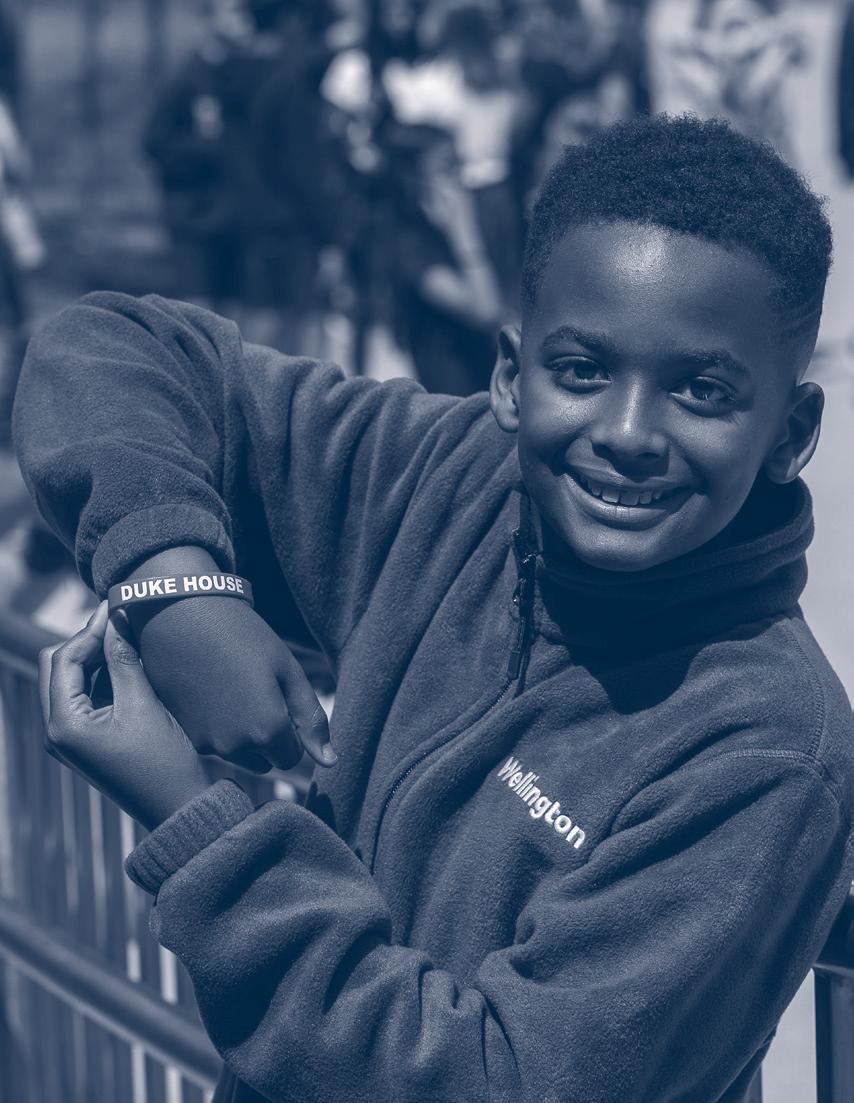
8:00-8:25
8:25-8:35
8:40-9:35
9:40-10:35 10:35-10:50
10:55-11:50 11:50-12:20
8:00-8:25 8:25-9:10 9:15-10:05 10:05-10:25 10:30-11:20 11:25-12:15 12:20-1:00 1:05-1:35 1:40-2:30 2:35-3:25
2:35-3:25
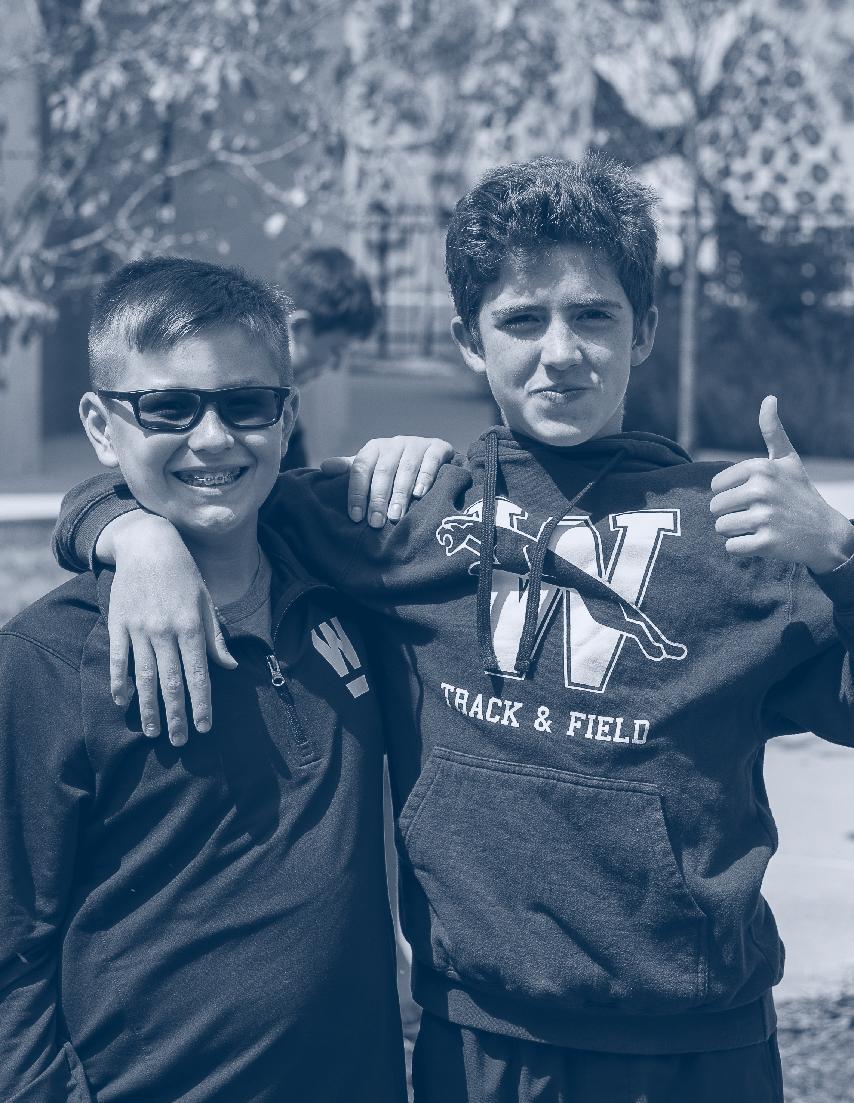
Wellington’s 5th grade provides a head start to middle school. Through a nurturing and academically challenging program, students learn the skills and mindsets for a smooth middle school transition. The core coursework includes: language arts, math, science, social studies, and French. Our 1:1 Chromebook approach means essential technology skills are seamlessly integrated into courses for every student. Outdoor education is a key piece to the 5th grade school year. Throughout the year, the 5th grade takes part in a hands-on earth science program at Stratford Ecological Center.
In addition to helping students develop academic success, we want our students to have choices and opportunities to try new passions and to learn the skills that help them flourish. All 5th grade students independently follow their academic curiosities in the deep dive research class, Explorers of the World. Every student takes visual arts and has the choice of band, choir, and strings. 5th graders might find and develop their individual voice by performing on stage in the middle school play, or by taking part in our award-winning robotics and cybersecurity teams. Framed around growth mindsets, character development, peer support, and study skills, the Advisory program provides a close knit home base for each student in this critical transition school year.
5th grade English language arts serves as a bridge year between an elementary school model of language arts instruction to a middle school English classroom. The primary goal of 5th grade English/ language arts is to provide students with instruction and experience to help them grow as readers, writers, speakers, and thinkers. Literature, composition, grammar, and vocabulary are woven into a variety of experiences, including projects and presentations. Students have frequent and varied opportunities to write and revise through a workshop approach that emphasizes student choice within a framework of skills and goals that all students must achieve. Grammar and mechanics are taught in conjunction with the students’ writing. In addition to whole class pieces, reading is differentiated by student reading levels and interests.
Choices may center on theme, curricular integration, or personal experience.
In 5th grade math, students learn to apply previously learned skills to more complex problem-solving. They also become proficient in working with very small and very large numbers. Topics include whole numbers, powers, fraction operations, algebraic basics, area and angle calculations, volume, ratios, decimals, percent operations, graphs, and probability. Students learn through exploration and discovery, and interactive real-world experiences.
5th grade expanded math extends previously learned skills into more conceptually based topics with a strong focus on judging the reasonableness of a solution and checking solutions for accuracy. New concepts are explored informally and concretely before gradually building toward a more formal and abstract understanding of the topic. Those topics include area and surface area, introduction to ratios, unit rates and percentages, dividing fractions, expressions and equations, rational numbers, data sets, and distributions.
The focus for 5th grade social studies is the geography, history, and culture of the Western Hemisphere. The Five Themes of Geography: location, place, humanenvironment interaction, movement, and region frame the first half of the year. Students learn digital mapmaking, U.S. states and capitals, landforms, landmarks, and the connection indigenous North Americans have with their regional environment. The second half of the year includes the geography of Mesoamerica and a historical emphasis on the Aztec, Incas, and Mayans. The Western Hemisphere experience is capped off with a deep-dive research project on the history of the 20th century in the United States.
In 5th grade science, students explore topics such as weather, ecology, nutrition/ digestive system, respiratory system, energy resources, and arthropods. As they transition to middle school, students will also explore: how to study, how to dive deeper into topics of interest, how to speak
in front of peers, and how to collaborate productively. Students deepen their understanding of course topics through a variety of independent work, larger scale projects, and labs. The 5th grade science curriculum is bolstered by visits to Stratford Ecological Center, providing students a reallife, hands-on opportunity to reinforce what they are studying in class.
In 5th grade French, students learn new vocabulary and grammatical concepts introduced in thematic and cultural contexts. While in lower school, students focused on speaking and listening skills; in 5th grade French, there is an increased emphasis on reading and writing skills. To develop and balance speaking, listening, reading, and writing skills, students participate in interpersonal conversations, skits, and role-playing activities during class. Topics and themes include: greetings and introductions, food and beverages, paying for a meal, talking about time, dates, seasons, and the weather.
In 5th grade physical education, we promote the joy of effort in physical activities and provide an element of enjoyment through participation in activities, games, and sports. Students are given opportunities to attain levels of skill development through practice and game play. Several units include numerous partner and small group activities that emphasize communication, teamwork, and fair play with other students.
5th grade art explores a variety of basic skills needed to create great art. Students venture into a deeper understanding of pencil skills, painting skills, color theory, and printmaking. They investigate art history, art criticism, composition, and design. All projects in 5th grade are designed to instill confidence and a basic understanding of how to think creatively.
Explorers of the World is a studentcentered, deep-dive research project class for all 5th grade students. Students select an area of interest and develop essential questions to drive their academic research. The project culminates in a presentation that demonstrates their understanding of the topic. This experience magnifies research skills, project management skills,
intrinsic motivation, public speaking, analyzing data, and synthesizing conclusions.
Band
5th grade is the first year of the Wellington band program. Students begin by selecting instruments based on fit, interest, and to a lesser degree, ensemble need. As the year progresses, students focus on the following: reading notation (language), developing tone, range, and endurance (skill and quality), and musical interdependence (musicianship). The musical experiences are student-focused and student-led.
5th grade students can elect to learn the violin, viola, cello, or bass. Students focus on proper posture and instrument position, reading music, practice habits, proper bow hold, and learning a variety of rhythms. Students perform in combined concerts on campus and on trips as opportunities arise. World-renowned musicians visit strings classes over the course of the year to share their talent and inspire student musicians.
Students in 5th grade choir learn proper vocal technique, standard age-appropriate vocal repertoire in unison and two parts, as well as sight reading using solfege syllables, from Do-So. The choices in the repertoire are student-focused and span all voice levels. Students perform in combined concerts on campus and on trips as opportunities arise.
The middle school ski program occurs over five weeks during the winter. All students take a ski or snowboard lesson and then spend time with their peers practicing skills, as well as strengthening middle school bonds. Learning a lifelong sport and taking risks are key components of this program which encourages a growth mindset.
5th grade students visit Stratford Ecological Center to delve into a wide range of handson earth and life science topics, including weather, ecology, energy resources, and arthropods. The fundamentals of this trip are integrated into 5th grade science curriculum. Several day trips are broken up between the fall, winter, and spring and allow the students an opportunity to see how the ecosystem changes from season to season and how different organisms adapt to these changes.
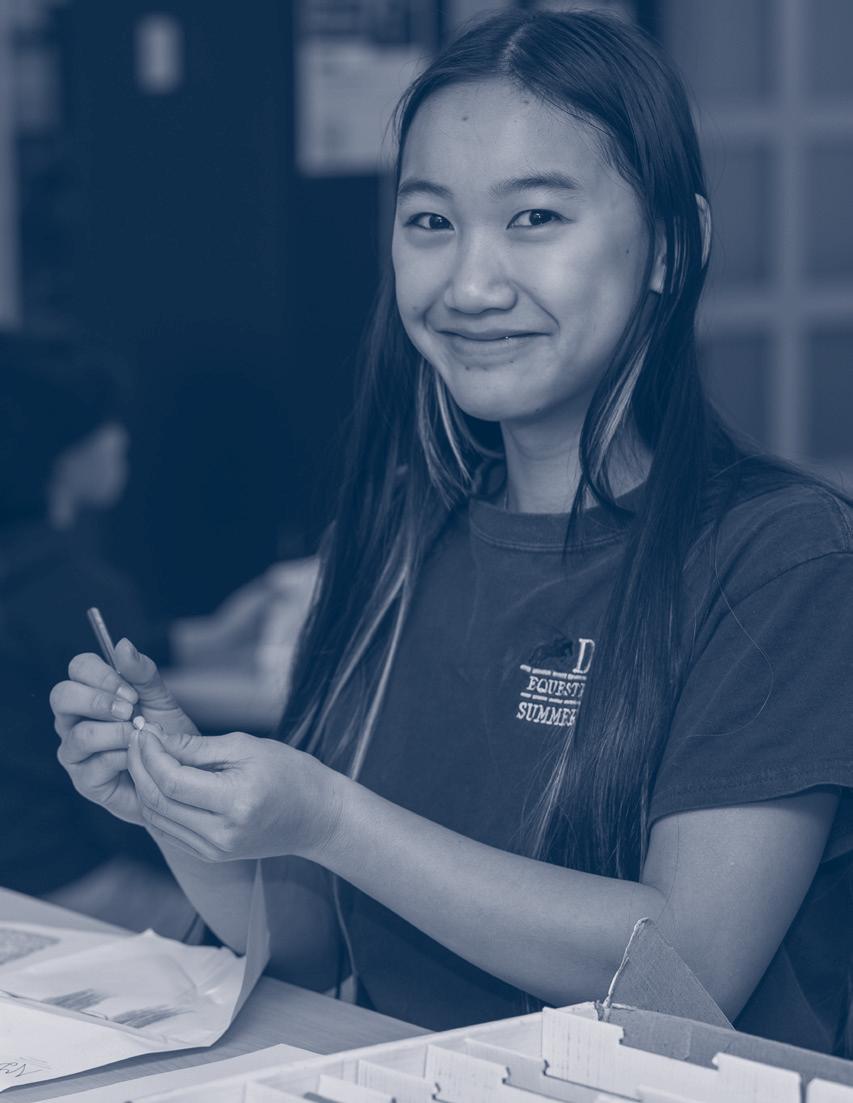
6th Grade
With one year of middle school complete, Wellington’s 6th graders continue to develop their academic, social-emotional, and character skills through a balanced and engaging program. 6th grade coursework includes: language arts, mathematics, science, social studies, French, music, art, and physical education. In addition, students can select from a variety of trimester classes based on personal interest or budding passion. Schoolissued Chromebooks allow students to access a myriad of technologies in the classroom as they cultivate critical digital literacy skills and responsibility. As 6th graders, students have the opportunity to participate in interscholastic sports, the annual middle school play, robotics, and cybersecurity. A beloved 6th grade curricular highlight is a threeday experiential learning field trip to Cuyahoga Valley National Park where students explore scientific themes in the watershed and woods. At school, the Advisory program serves as a constant throughout the year, fostering authentic connections among peers and giving each student a sense of feeling known and affirmed.
6th grade English language arts provides experiences designed to develop confidence and competence in reading, writing, speaking, and (active) listening. Students read closely, apply literary terms to their reading, and think critically as they analyze literature. Close reading and annotation are taught through anchor pieces, but novel choice is differentiated by reading level and student interests. Students engage in a study of Greek and Latin roots to help build a strong base for vocabulary acquisition; in addition, they learn new vocabulary through word studies generated from their reading. Using the process approach to writing, students develop their composition skills in narration, description, exposition, persuasion, and poetry. The study of grammar is linked to writing, which enables students to see the practical application of what they are learning. Highlights of sample units of study include short stories and literary terms, the five-paragraph essay, podcasting, Lois Lowry’s “The Giver,” and a storytelling unit at the end of the year that highlights speaking and listening skills. Throughout the year, there is a focus on the power of words and the joy of reading and writing.
6th grade math extends previously learned skills into more conceptually based topics with a strong focus on judging the reasonableness of a solution and checking solutions for accuracy. New concepts are explored informally and concretely before gradually building toward a more formal and abstract understanding of the topic. Those topics include area and surface area, introduction to ratios, unit rates and percentages, dividing fractions, arithmetic in base ten, expressions and equations, rational numbers, data sets, and distributions.
In 6th grade expanded math (prealgebra) students extend more deeply into previously learned topics while being introduced to key algebraic concepts necessary to be successful in algebra. Students develop skills with proportional relationships, rational and irrational numbers, exponents, integers, rates, ratios, algebraic expressions and linear equations, as well as geometric prisms. These topics allow for a variety of hands-on demonstrations and real-world applications.
In 6th grade social studies, students focus on early civilizations including Mesopotamia, Egypt, India, China, ancient Israel, Greece, and Rome. The goal is to gain an understanding of the development of societies from nomadic to agricultural and from tribal societies to empires. Focus is given to those aspects of ancient culture that include religion, art, architecture, foodways, and government. Students also explore the geography associated with these cultures and learn how geography influences where and how people live. Emphasis is placed on those skills that provide a foundation for success in this course and future academic work.
In 6th grade science, students explore topics such as water, living things, cells, genetics, the circulatory system, the skeletal and muscular system, the solar system, and space. They demonstrate learning through large projects, debates, and small group collaborations. The 6th grade camp experience at Cuyahoga Valley National Park provides students with an opportunity to explore water and freshwater ecosystems.
In 6th grade French, students increase proficiency and continue to hone the speaking, listening, reading, and writing skills developed in 5th grade French. They use French in their interactions with the teacher and their peers through oral questions, partner and small-group activities, framed dialogues, and skits. Topics and themes include: daily activities at school and at home, question words, affirmative and negative expressions, adjectives, personal possessions, and colors.
In 6th grade physical education, students focus on the development of specific sport skills. A variety of traditional and non-traditional sports are introduced. Lead-up activities and games are modified to accommodate the skill level of students. Students continue to improve and apply these skills to specific sports and recreation activities to promote a healthy lifestyle. The program encourages and fosters the development and maintenance of personal physical fitness with testing done each trimester.
The 6th grade visual art course builds upon aesthetics, art history, art criticism, visual culture, and student experiences from 5th grade. Students explore, organize, and use visual elements for expressive purposes. Personal experiences are utilized as themes for their art. Units of study may include: en plein air painting, art history, “Blue Dog” by George Rodrigue, color theory, printmaking, and gesture drawing and proportion.
Band
6th grade band is a continued development of reading notation (language), developing tone, range, and endurance (skill and quality), and musical interdependence (musicianship). Mastery of fundamentals within the first octave and subdivisions to 8th note levels are expected. Music frequently has three to five independent parts sounding simultaneously, so independent command of pitch and rhythm is a major goal. The musical experiences are student-focused and student-led. Students perform in combined concerts on campus and on trips as opportunities arise.
In 6th grade strings, students continue with the violin, viola, cello, or bass. More complex rhythms are introduced as students grow confident in their playing. Students perform in combined concerts on campus and on trips as opportunities arise. World-renowned musicians visit strings classes over the course of the year to share their talent and inspire student musicians.
Students in 6th grade choir continue to learn proper vocal technique, focusing on range expansion and dynamic control. They continue to learn standard choral repertoire, singing in unison, two and three parts in various languages. Music theory includes duple and triple patterns and sight reading includes Do-Do exercises using solfege syllables. The choices in the repertoire are student-focused and span all voice levels. Students perform in combined concerts on campus and on trips as opportunities arise.
The middle school ski program occurs over five weeks during the winter. All students take a ski or snowboard lesson and then spend time with their peers practicing skills, as well as strengthening middle school bonds. Learning a lifelong sport and taking risks are key components of this program which encourages a growth mindset.
6th graders continue their study of science outside of the classroom during a three-day trip to Cuyahoga Valley National Park. This trip includes a very thorough study of the watershed and provides real life experiences such as pond-dipping, night hikes, hands-on classroom activities, and an extensive study of how the watershed has changed since the formation of the park.
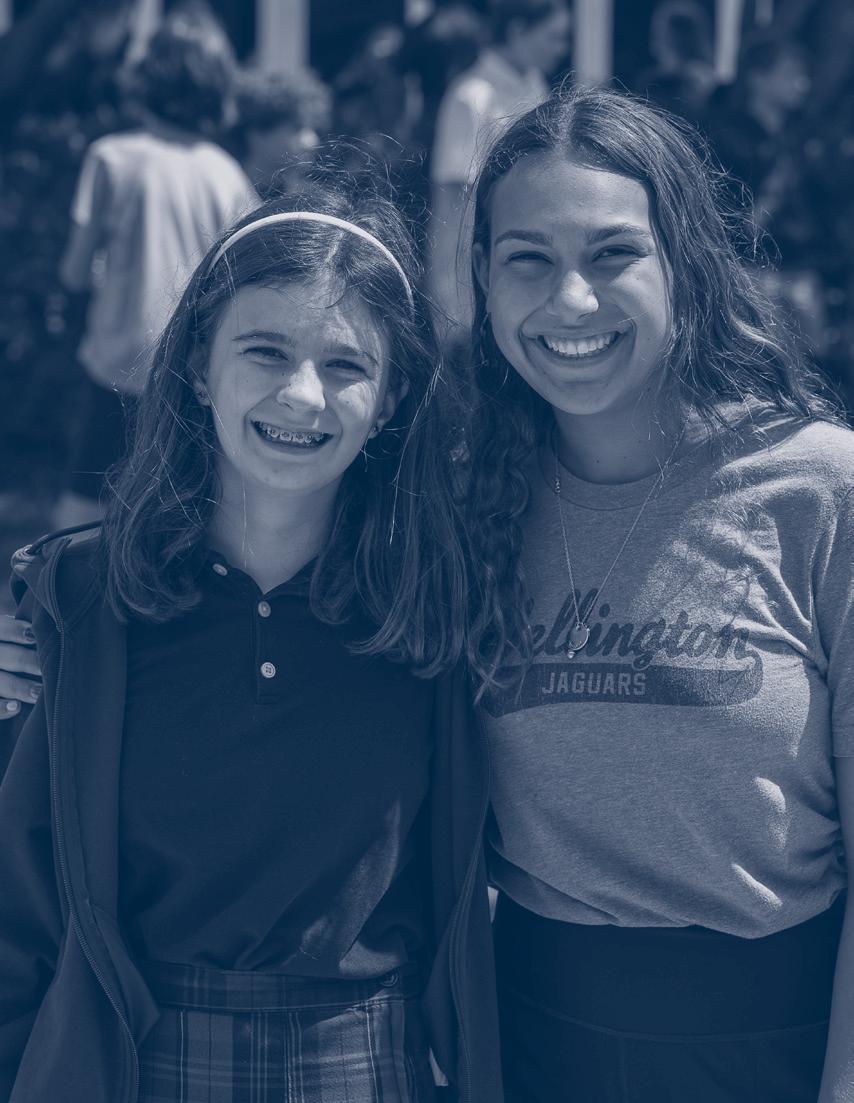
7th grade is a time of incredible developmental growth and the perfect opportunity to cultivate strategic and healthy habits while stoking curiosity. Students are guided to apply the routines and study skills learned in 5th and 6th grade to support educational benchmarks. 7th grade hosts the middle school milestone trip to our country’s capital. Major projects such as sharing research during Volcano Week, writing a colonial newspaper, and the AIR (Argument. Interpretation. Research.) project in English are rites of passage.
7th grade English language arts toggles back and forth between writing-centered units and reading-centered units with work on vocabulary and grammar layered in. Throughout the year, students engage in a variety of writing activities including “This I Believe” essays, expository and persuasive paragraphs, and the AIR Project (short for argument, interpretation, and research). The AIR Project is a hallmark 7th grade capstone project requiring students to write an argument, offer an interpretation of an image, text, or data set, and craft a research essay that incorporates data about their topic from reliable sources. Through engagement in the academic process, students develop greater sophistication as readers, writers, thinkers, listeners, and speakers.
In 7th grade prealgebra, students extend more deeply into previously learned topics while being introduced to key algebraic concepts necessary to be successful in algebra. Students develop skills with proportional relationships, rational and irrational numbers, exponents, integers, rates, ratios, algebraic expressions and linear equations, and geometric prisms. These topics allow for a variety of hands-on demonstrations and real-world applications, such as cooking and architecture.
In 7th grade algebra, students begin the year by strengthening arithmetic skills and applying new algebraic concepts. Thereafter, this course dives deep into many fundamental algebraic concepts. Topics for this course include: variables, expressions, linear equations, linear functions, inequalities, systems of equations
and inequalities, exponents and exponential functions, quadratic expressions and equations, quadratic functions, rational functions and equations, and statistics and probability. These topics are explored in many ways, including collaboration and realworld applications with hands-on projects and tasks.
Students study United States history from colonization to the end of Reconstruction. Students learn how to do the work of historians by investigating and analyzing primary source documents. This course provides a foundation for understanding the structure of the Constitution and the powers of government. By studying multiple voices that make up the history of the United States, students come away with an understanding of key turning points up to 1877.
7th grade science is designed to develop curiosity and to provoke thought through the lens of earth science, health, and chemistry. Students learn about topics such as plate tectonics, volcanoes, earthquakes, atomic structure, electron configuration, chemical reactions, balancing equations, and their health. Students develop research skills, public-speaking skills, and collaborating through participation in hands-on labs, giving presentations, building models, and running experiments.
In 7th grade physical education, students continue to improve and master skills for specific sports and recreational activities to compete in a school sport or maintain a healthy lifestyle. Students engage in a variety of activities which include physical fitness and individual and team sports. Students learn the rules of play, strategies, and demonstrate good sportsmanship during play.
7th grade French students continue their path to proficiency through communicative activities set in thematic and cultural contexts. Students use French in their interactions with the teacher and their peers through oral questions, partner and smallgroup activities, framed dialogues, and skits. Class time includes a balance of listening, reading, writing, and speaking activities that introduce linguistic structures, promote cultural awareness, and engage students in critical thinking. Topics and themes include: talking about oneself, family, school, and classes; describing cities and places around town; transportation and asking for directions; leisure activities, sports, and games; shopping, clothing, and accessories.
The first of this two-year curriculum gives students a foundation in the Latin language and culture through emphasizing grammar, reading comprehension, vocabulary, and English derivatives. Students learn about the structure of both English and Latin sentences through readings and discussions about the daily life of a Roman family. Class time includes a balance of listening, reading, and writing activities that help students understand linguistic structures in Latin and English, promote cultural awareness, and engage students in critical thinking. Grammar topics include present and imperfect tenses, three declensions of nouns, the uses of six cases, noun-adjective agreement, and adverb formation. Students learn about common Latin expressions, mottoes, and abbreviations used in English. Students also have the opportunity to delve into various topics such as Greek and Roman mythology and Roman history.
The first year of this two-year curriculum gives students a foundation in the Spanish language and culture. Students participate in engaging activities that bring the language to life and allow them to develop an ear for Spanish language sounds and structures. The class employs authentic resources so students hear the language in the many different accents of Spanishspeaking countries around the world. Foundational grammar of present tense verbs, noun-adjective agreement, and relevant vocabulary anchor the curriculum, which is enhanced with cultural studies. Not only do students begin to develop proficiency in the four skill areas of reading, writing, listening, and speaking, but they
also practice them through presentational, interpretive, and interpersonal modes.
In 7th grade visual art, units of study continue to build upon previous theories, concepts, and techniques requiring students to further explore critical thinking and problem-solving. Artist statements, research, and formal critiques enable students to assess, reflect and evaluate their work as well as interpret meanings in their work and the work of others. Major units of study may include: narrative book arts, photography, outsider art, perspective drawing, Jacob Lawrence: Harlem Renaissance, and Abstract Expressionism.
The main focus of 7th and 8th grade band is continued development and expansion of fundamental musical skills, including broader range and more intricate rhythmic patterns. There is also a greater emphasis on how music is put together. The musical experiences are student-focused and student-led. They perform in combined concerts on campus and on trips as opportunities arise and may participate in the Ohio Music Education Association (OMEA) Solo and Ensemble contest for the first time.
More complex music is introduced in 7th and 8th grade strings as students become more proficient on their instrument. Students perform in combined concerts on campus and on trips as opportunities arise and may participate in the Ohio Music Education Association (OMEA) Solo and Ensemble contest for the first time. Worldrenowned musicians visit the ensemble over the course of the year to share their talent and inspire student musicians.
Students in 7th and 8th grade choir focus on expanding their vocal ranges, with vocal exercises designed for developing adolescent voices. They sing standard repertoire in three parts, expanding to four parts in a variety of languages. Theory includes notation in both treble and bass clef, rhythmic studies in compound meters, and sight reading using solfege syllables in both major and minor keys. Students perform in combined concerts on campus and on trips as opportunities arise and may participate in the Ohio Music Education Association (OMEA) Solo and Ensemble contest for the first time.
The middle school ski program occurs over five weeks during the winter. All students take a ski or snowboard lesson and then spend time with their peers practicing skills, as well as strengthening middle school bonds. Learning a lifelong sport and taking risks are key components of this program which encourages a growth mindset.
Students experience American history in the past as well as history in the making on a four-day trip to Colonial Williamsburg and Washington, D.C. The experience ties directly into the 7th grade social studies curriculum and also serves to strengthen student independence through out-of-state travel with classmates.
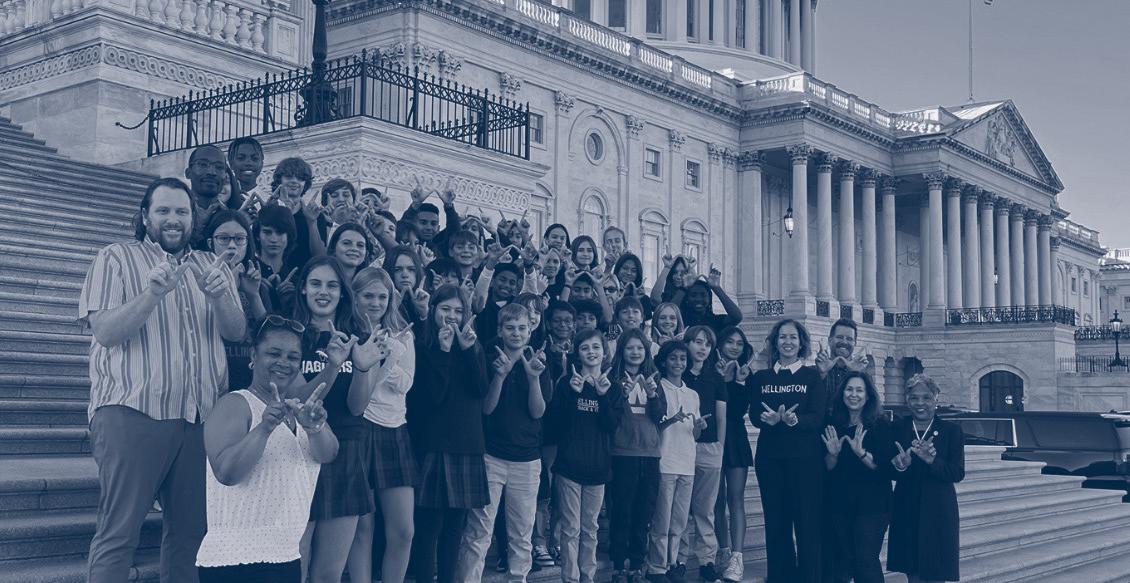
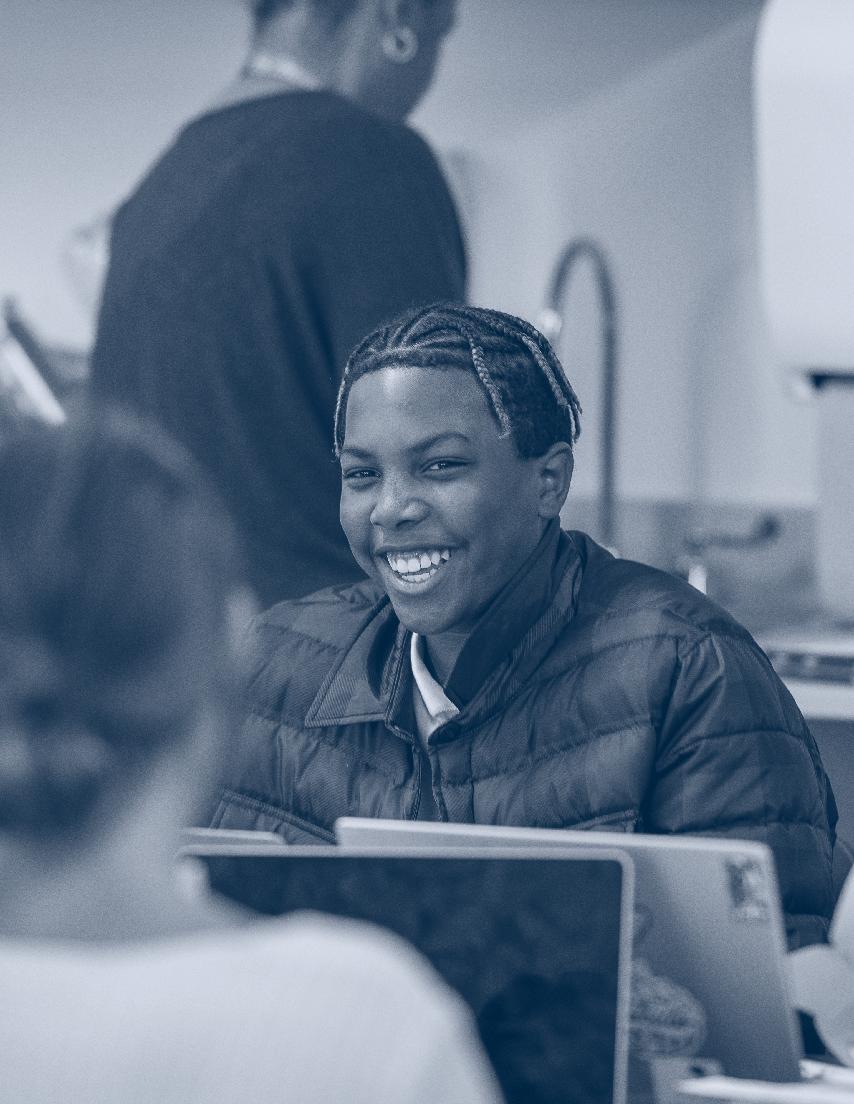
8th grade at Wellington is a pivotal year in our students’ journey when we focus on two main points in addition to their academic coursework and social development. The first focus is exposing students to a variety of world cultures through our academic curriculum and providing them opportunities to experience more. One way we accomplish this is through an immersive trip to Chicago where students explore a rich and diverse metropolitan culture. Students also complete an International Week Project, selecting a country or city to research extensively in order to share their findings with an audience of peers and adults. The second focus of the 8th grade is to prepare our students for what lies ahead in upper school and beyond. Students are challenged academically, supported as they practice new study skills, and guided through essential social and emotional lessons that will give them the tools they need to succeed in the future. Our goal is for students to leave middle school with a broader cultural understanding of the world and confidence in their ability to navigate it successfully.
The 8th grade humanities course includes curricular content from English and social studies to show thematic connections between history, literature, and the present day. This course is an introduction to world history that centers on the historical period of the Middle Ages from the fall of the Roman Empire through the Age of Discovery. These connections help bring time periods to life through literature and provide students with authentic writing opportunities. This course is designed to polish foundational skills developed in grades 5-7 and apply them in increasingly more sophisticated ways. Emphasis is placed on critical thinking and analysis in reading, writing, research, and discussion.
8th grade algebra is an introductory algebra course placing emphasis on strengthening arithmetic skills, applying new algebraic concepts in a variety of different settings, and problem-solving. Topics for this course include: variables, expressions, linear equations, linear functions, inequalities, systems of equations and inequalities, exponents, quadratic expressions and equations, and quadratic functions.
Students will learn through collaboration and will complete multiple hands-on projects exploring real-world applications of the content.
8th grade geometry is a challenging course focused on strengthening algebraic skills and applying new geometry concepts. Topics for this course include: euclidean definitions, logic, properties and measurements of geometric figures, properties of triangles, triangle congruences, special right triangles, properties of parallel lines, Pythagorean theorem and other basic geometric theorems, properties of parallelograms, properties of circles, and finally area, surface area, and volume of geometric figures. These topics will be explored in a variety of ways, including hands-on projects to visually apply theorems and postulates.
8th grade is a year of discovery in the field of physical science. Students learn about topics including: forces and laws of motion, energy, simple machines, waves, types of chemical reactions, and gas laws. These areas of exploration allow for a variety of hands-on labs and experiments and provide numerous opportunities for students to develop their scientific language and lab report writing skills through use of the scientific method.
In 8th grade physical education, students engage in activities which include physical fitness, team sports, individual sports, and recreational games. Competitive athletics are a natural outgrowth of progression from individual to team skills. Emphasis shifts to team sports and vigorous activity in a cooperative atmosphere. Students study the rules of play and strategies, and demonstrate good sportsmanship during play.
8th grade French students continue their path to proficiency through communicative activities set in thematic and cultural contexts. Students use French in their interactions with the teacher and their peers through oral questions, partner and smallgroup activities, framed dialogues, and skits. Class time includes a balance of listening, reading, writing, and speaking activities that introduce linguistic structures, promote cultural awareness, and engage students in critical thinking. Topics and themes include: leisure-time activities, vacation travel plans, narrating past events, discussion about food preferences and eating habits, planning a meal, and dining out in public.
The second of this two-year curriculum continues to build a foundation in Latin language and culture through emphasizing grammar, reading comprehension, vocabulary, and English derivatives. Readings and discussions about the daily life of a Roman family help students learn about the structure of both English and Latin sentences. Class time includes a balance of listening, reading, and writing activities that help students understand linguistic structures in Latin and English, promote cultural awareness, and engage students in critical thinking. Grammar topics include all six tenses, three declensions of nouns, the uses of six cases, noun-adjective agreement, and adverb formation. Students learn about common Latin expressions, mottoes, and abbreviations used in English. They also have the opportunity to delve into various topics such as Greek and Roman mythology, as well as Roman history.
The second year of this two-year curriculum gives students a foundation in Spanish language and culture. Building on 7th grade curriculum, students are again exposed to the language through engaging activities that bring Spanish to life and allow them to develop an ear for sounds and structures. The class employs authentic resources so students hear the language in the many different accents of Spanish-speaking countries around the world. Foundational grammar of present tense verbs, nounadjective agreement, and relevant vocabulary anchor the curriculum, which is enhanced with cultural studies. Not only do students begin to develop proficiency in the four skill areas of reading, writing, listening, and speaking, but they also practice them through presentational, interpretive, and interpersonal modes.
8th grade art encompasses studio, art history, aesthetics, art criticism, visual culture studies, and media literacy. Students explore possibilities and limitations of media, tools, techniques, and technology. Units of study require students to explore connections beyond the discipline and on a global scale, as well as drawing upon personal experiences to develop themes for their artwork. Units of study may include: Frank Stella: abstraction and realism; Andy Warhol: inkblot printing; Betye Saar: assemblage art; gum-arabic photo transfer printing; Wayne Thiebaud: Pop Art pastry paintings; memory paintings: perspective; stone carving: ceramics, visual culture studies: media literacy (expository writing in conjunction with English); and Surrealism.
The main focus of 7th and 8th grade band is continued development and expansion of fundamental musical skills, including broader range and more intricate rhythmic patterns. There is a greater emphasis on how music is put together. The musical experiences are student-focused and student-led. Students perform in combined concerts on campus and on trips as opportunities arise and may also participate in the Ohio Music Education Association (OMEA) Solo and Ensemble contest for the first time.
More complex music is introduced in 7th and 8th grade strings as students become more proficient on their instrument. Students perform in combined concerts on campus and on trips as opportunities arise and may also participate in the Ohio Music Education Association (OMEA) Solo and Ensemble contest for the first time. Worldrenowned musicians visit the ensemble over the course of the year to share their talent and inspire student musicians.
Students in 7th and 8th grade choir focus on expanding their vocal ranges, with vocal exercises designed for developing adolescent voices. They sing standard repertoire in three parts, expanding to four parts in a variety of languages. Theory includes notation in both treble and bass clef, rhythmic studies in compound meters, and sight reading using solfege syllables in both major and minor keys. Students perform in combined concerts on campus and on trips as opportunities arise and may
also participate in the Ohio Music Education Association (OMEA) Solo and Ensemble contest for the first time.
The middle school ski program occurs over five weeks during the winter. All students take a ski or snowboard lesson and then spend time with their peers practicing skills, as well as strengthening middle school bonds. Learning a lifelong sport and taking risks are key components of this program which encourages a growth mindset.
This four-day travel adventure allows 8th graders to experience a diverse and multicultural city as they seek to understand their place in the world. Students explore architectural and historical features of the city, ethnic neighborhoods, museums, major city landmarks, and much more. Students are immersed in the culture through food, performing arts, entertainment, and history. As the final class trip in middle school, students are encouraged to fully engage in all aspects of travel, as well as practice and refine their communication and leadership skills.
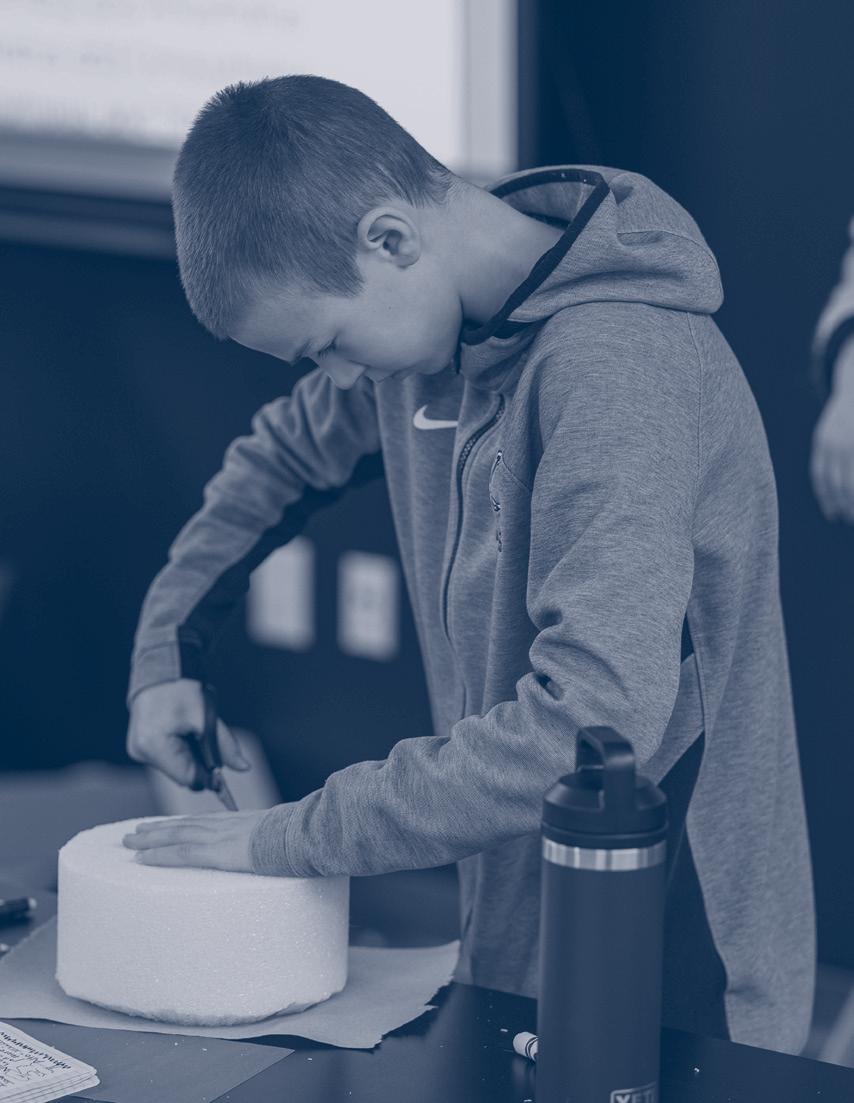
Dive courses merge student and teacher interests in highly engaging and meaningful ways. Teachers choose topics that they are passionate about and create courses that will entice students to expand their knowledge. Students take four Dive classes throughout the year, two in the fall and two in the spring. The electives are primarily non-graded as teachers strive to help students develop intrinsic motivation that comes from the satisfaction of learning something for their own benefit, rather than for a letter grade. Below are curricular overviews of recent Dive offerings.
Art of the Fold
Students will explore the creative world of Origami, learning to transform simple sheets of paper into intricate designs, from animals to decorative shapes. This hands-on class encourages creativity, patience, and precision, offering a fun way to develop fine motor skills while crafting beautiful paper creations.
In this class, a different medium will be introduced each week. At the beginning of each class, we will have a specific objective with room for lots of creativity. The goal is to create a work of art each class and work our way to filling up a sketch book.
Join our exciting basketball class designed for middle school students eager to improve their skills on the court. In this class, students will learn the fundamentals of dribbling, shooting, and teamwork through fun drills and practice games. Whether you’re a beginner or looking to refine your game, this class offers a supportive environment to boost your confidence and athletic ability.
This Dive is a service-learning course where students will realize their potential to make a positive impact in our world. Students will dive into critical challenges in our community through discussion and activities and will take action to make an impact through service projects.
This course is designed for students who enjoy politics, debate, and American history. In Constitutional Law, you will acquire “legal literacy” through an interactive exploration of the United States Supreme Court. We will focus on cases that have advanced all the way to the highest court in the land, which involve the interpretation of the U.S. Constitution. You’ll read actual court opinions, understand the inner workings of the Justices’ chambers, and even make arguments of your own through our moot court proceedings. Be prepared to exercise writing, critical reading, and public speaking skills often in this seminar.
This class is perfect for 7th and 8th graders who want to dive into awesome projects and learn how to make a real difference. Students will tackle cool topics like cleaning up water pollution, solving oil spill mysteries, and discovering supercharged recycling and green energy ideas. Plus, you get to pick some of the adventures we’ll go on together!
Cooking 101 is an introduction to cooking skills, following recipes, and learning that cooking from scratch is accessible to all. Some of the scrumptious delights we make will include pizza dough, fresh pasta, pumpkin bread, and zucchini fritters.
Students will utilize a wide variety of singleplayer roleplaying games (like Dungeons & Dragons but designed for one person instead of a group) to draft their own creative writing pieces. Game genres will include fantasy, science fiction, adventure, mystery – even humor! Along the way, we’ll explore genre, craft, story structure, and more.
In this Dive, our work begins with the creation of imaginary bronze age communities - human settlements that students imagine, map out, and describe in writing. Over time, each settlement comes into view more clearly as students create maps and figure out crucial aspects of the town’s economy and political structure. Students write scripts that capture slices of life in their town and ultimately engage in trade with other cities to meet the needs of their people. In the second stage of this Dive, a party of imagined characters moves
from one of the imagined communities to another.
If you have ever dreamed of releasing your inner artistic self, then this dive is for you. We will introduce basic watercolor techniques and, for those who are continuing on with the course, we will take on more advanced techniques.
Do you love books written by author Gordon Korman? In this Dive, students will share their thoughts on Korman’s writing style and his many novels. We will read “Restart” and dive deep into the book’s unique characters. This class is designed for students who enjoy reading outside of class.
This class will introduce students to philosophical thinking and survey a number of different philosophical topics. Class time will involve critical reading and group discussion and some writing. Some of the topics we will discuss are ethics, philosophy of science, logic, leadership, friendship, and more.
This class is an introduction to the field of psychology as a social science. We will explore different aspects of the field including research and career paths. Various developmental theories will be examined with the intent of gaining insight into our own behavior, as well as the behavior of others.
If you’ve been practicing yoga for a while or are looking to start, come learn the basic poses to strengthen your abilities and flexibility. Each class will include a routine with familiar and new poses to grow each day. Students will need to bring their own mat.
Jumpstart your financial future with our Investors Boot Camp, tailored for middle schoolers eager to learn the basics of investing. This interactive program introduces students to key concepts like stocks, bonds, and the power of compound interest, all through engaging activities and real-world examples. By the end of the Dive, participants will have a solid foundation in financial literacy and the confidence to start their own investment journey.
The Jazz Band dive will give students the opportunity to learn about the history of “America’s Art Form,” how it has changed over time, and how we as musicians play different styles of jazz. Students will be introduced to various rhythmic and articulative aspects of the music and will have a chance to try their hand at improvisation.
Students will examine and learn about the cultural significance of select works of art and the role that they play in Latin American culture while considering the contexts in which they were produced and perceived. They will create tin Milagros, ex-votos, a Calaca that honors a family member, and create papel picado. We will also build an ofrenda for el Día de Los Muertos. Students will have the opportunity to expand their listening and speaking skills, and it all culminates in a fiesta at the end of the course!
Warren Bennis once said, “The most dangerous leadership myth is that leaders are born – that there is a genetic factor to leadership. That’s nonsense; in fact, the opposite is true. Leaders are made rather than born.” In this course, we will unpack this idea and embrace the notion that there is a leader in each of us. This course will focus on how to help young people build their capacity for leadership. There will be time for personal reflection and goal setting, teamwork, visits from local leaders, and skill development.
In the LEGO Masters dive students will have the opportunity to create and engage in hands-on experimentation with their peers. Each session presents a new challenge that requires students to think outside the box, employing their imagination and engineering skills to craft innovative solutions. Students will have the opportunity to showcase their ingenuity in a series of competitions, where they’ll pit their creations against those of their peers.
Students will explore their creativity by working on personal projects or participating in weekly set projects. They will also have the opportunity to either practice or learn how to use various tools available in the Maker Space.
Wellington will be entering a team in the renowned MathCounts competition this year. This course offers coaching and practice guided by previous tests that prepare students to compete as an individual or team member for the in-person contests. The MathCounts competition takes place in downtown Columbus in February and includes 45 other local middle school teams. Students will also have the opportunity to participate in the annual AMC8 national completion here at Wellington, as well as other online math contests. Recognition and rewards are in store for winners and other competitors!
The Middle School Morning Show is back with breaking Wellington news including segments on fashion, weather, traffic and more. Students will produce, anchor, film, and edit their very own morning news program.
Join our NaNoWriMo dive to embark on a thrilling writing adventure! Starting from the beginning of the school year, we’ll prepare for National Novel Writing Month (NaNoWriMo) in November, where you’ll aim to write a 50,000-word novel (or whatever goal you set!). Gain support and share ideas with fellow student writers. After November, we’ll focus on editing our drafts, refining the work, and even learning how to write query letters to literary agents. Whether you’re a seasoned writer or a beginner, this Dive offers a supportive and creative environment to develop your writing skills and achieve your literary goals. All levels welcome!
In this class students will work in a small group to build a paper rollercoaster out of nothing but paper and tape. Groups will put their knowledge of physics to the test as they design and build a coaster in our class competition. Students will purchase building supplies using fictitious money. If you love design challenges, this Dive is for you!
In this Dive, students will explore poetry. They will read and discuss model poems to learn about poetic devices and poetry forms before diving in to play with language. Learners will be looking for poetry in the world around them and using it as inspiration for their own writing. Students
will have multiple opportunities to craft their own poems and will be encouraged to revise their favorites for publication. If time allows, students will create their own mini magnetic poetry set.
This dive will explore the most famous pop music icons in history, including Michael Jackson, The Beatles, Taylor Swift, Prince, and many more! This course will cover not only biographical information about each musician, but the historical and cultural context that surrounded them and their music. We will discuss the evolution of technology and its continuing influence on pop music. This course will also touch on elements of the music itself (rhythm, key, form), how these elements impact the listener’s experience, and the evolution of these musical elements across decades of pop music. Of course, this class will also include lots of pop music listening!
Take some time to focus on you in this practical and relaxing class! You’ll explore self-care in a way that’s easy to understand and apply to your everyday life. Through fun activities and simple mindfulness techniques, you’ll learn how to manage stress, improve your mood, and build healthy habits. Whether it’s creating a personal wellness toolkit or practicing gratitude, you’ll leave with skills to help you feel balanced and ready to handle whatever comes your way in middle school and beyond.
In this hands-on elective, students will explore the world of sustainable creativity by designing and constructing projects using recyclable materials. From transforming everyday waste into functional items to creating imaginative art pieces, students will learn about upcycling, basic design and construction techniques, and environmental responsibility. Through a series of individual and group projects, they’ll develop problem-solving skills, practice a mindset of resourcefulness, and discover the impact of reusing materials in innovative ways.


Skill development and a balance between participation and increased competition are the primary focuses of middle school athletics. The goal is for each student to receive some playing time during each contest and every child is encouraged to join a Wellington athletic team. Coaches and athletes work to create an inclusive and energetic team environment while thoroughly preparing for the transition to upper school athletics.
The Wellington Sports Performance Program seeks to inspire character, competition, and commitment while creating improved movement quality, strength, speed, and agility of studentathletes.
The purpose of the Jump Start Program (JSP) is to increase body control, improve strength and speed, and decrease the risk of injuries. The JSP also introduces the
middle school athlete to the movements used and standards held in the Upper School Sports Performance Program, helping to ease the transition to upper school athletics. The primary emphasis of JSP is on learning, enjoyment, and effort as opposed to the performance focus in upper school sessions. Each session will include speed and agility work, body awareness exercises, and some technique-focused resistance training.
A wide variety of sports are offered at Wellington. *6th grade participation in these sports is dependent on interest and roster availability.
Coed Soccer (grades 5-8)
Girls Tennis (grades 6-8)*
Coed Golf (grades 6-8)*
Boys Cross Country (grades 6-8)*
Girls Cross Country (grades 6-8)*
Boys Basketball (grades 5-8)
Girls Basketball(grades 5-8)
Boys Swimming (grades 6-8)
Girls Swimming (grades 6-8)
Baseball (grades 6-8)
Softball (grades 6-8)
Girls Lacrosse (grades 6-8)
Boys Tennis (grades 6-8)*
Boys Track and Field (grades 6-8)
Girls Track and Field (grades 6-8
